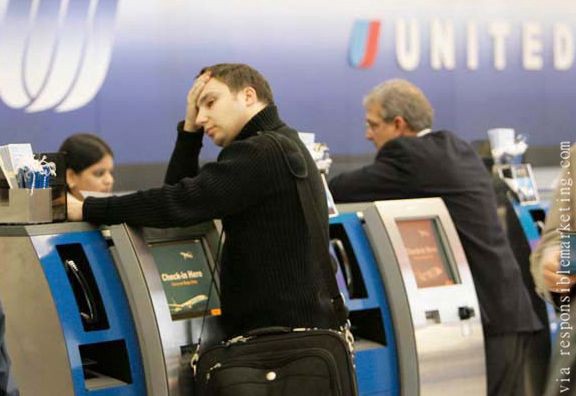We should not assume that a group asking for “feedback” is really listening. Listening is a cultivated and individual skill. Feedback is typically less refined and subject to organizational filters.
Recently I noticed that the New York Times seems to have stopped publishing letters in its Sunday Magazine and Book Review. Not an earthshaking change maybe. But it began to strike me that this deletion of reader’s opinions was odd when juxtaposed with the paper’s fall-over-backwards requests for feedback after doing something as simple as reporting a missing paper. The single checkmark notification is a nano-second act, yet it provoked a request to know how satisfying or difficult the experience was. It seemed that their priorities were upside down. Why dismiss reader’s comments while keeping a useless exercise about a simple matter? I suspect this is a kind of irrationality that grows out of an automated system which doesn’t know what matters. We are on the midst of similar requests for feedback from CX (Customer Service) teams responsible for designing the “customer journey” in retail. They can satisfy themselves by signaling concern for customers without setting up the tools needed to fully follow through. Listening is a demanding intellectual exercise; responding to an set of a-priori questions is not.
![]() It’s worth remembering that the term “feedback” arose as a name for noise or interference produced by an electrical circuit back onto itself. The deafening growl of a public address system is an example. We get a double dose of aural unpleasantness if Uncle Fred gets his karaoke microphone too close to the speakers.
It’s worth remembering that the term “feedback” arose as a name for noise or interference produced by an electrical circuit back onto itself. The deafening growl of a public address system is an example. We get a double dose of aural unpleasantness if Uncle Fred gets his karaoke microphone too close to the speakers.
To be sure, I’m an outlier for still expecting a newspaper to be in the driveway each morning. But this simple example suggests a growing trend in how we are asked to interact with agencies, businesses and organizations. Our communications with these entities seems less about the specifics of a response, and more about creating a running tally of stock complements, complaints, or experiences that can be processed into data-driven marketing. “How did we do?” asks the online store. “Did we answer your question?” a tech website wants to know. The answers will only need a simulacrum of listening, without anyone knowing enough to learn much from the answer.
With some exceptions the idea of “customer care” now amounts to the creation of a digital interface between an increasingly impatient live body on one end, and a digital “bot” with a set of closed-option questions on the other. Companies like Bizrate specialize in setting up such systems for clients. But rarely do organizations allow a customer with a specific question to frame their issue in their own way. Speaking broadly, as a culture we are under the paradoxical impression that we need to appear consumer-driven, but we don’t need to hear that much. Surely customer comments can do some good. But we are already so overtaxed with incoming messages that these pre-formed exchanges seem like they hardly matter.
More often than not, the organizations repertoire of a group’s “answers” cannot easily match the particular variables embedded in a question. Hence, no one is really “chatting.” We have all ended up at the top of a phone tree when none of the options seem good. To change metaphors, more than I can count I’ve ended an exchange with a chatbot feeling like I got pushed onto the wrong train. Try dealing with your cable supplier, and you will likely conclude the experience feeling like you ended up going to Duluth rather Dallas.
What is both ingenious and perverse in these end-of-transaction questions is seemingly how much an organization pretends that it is listening. The problem, of course, is that prompts generated by algorithms cost practically nothing to produce. And they may actually yield some data that can satisfy the performance expectations of management. It seems like the marketing department is growing, but the service department has been hollowed out. Odds are that an organization really doesn’t want to hear you on your terms.




